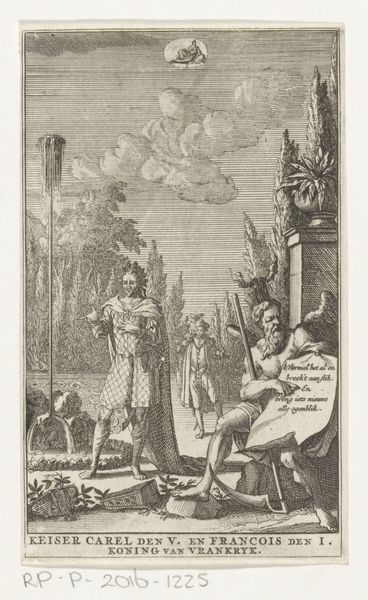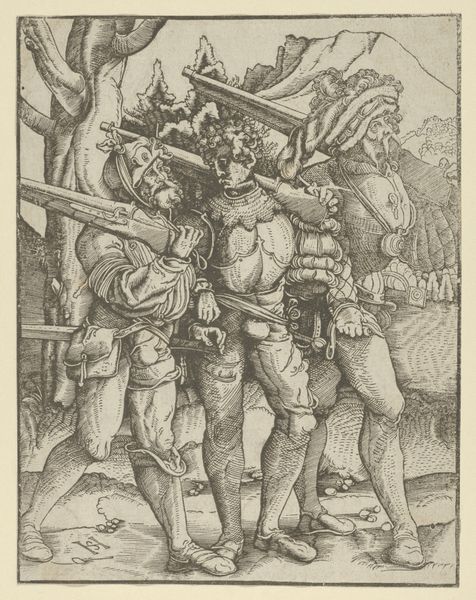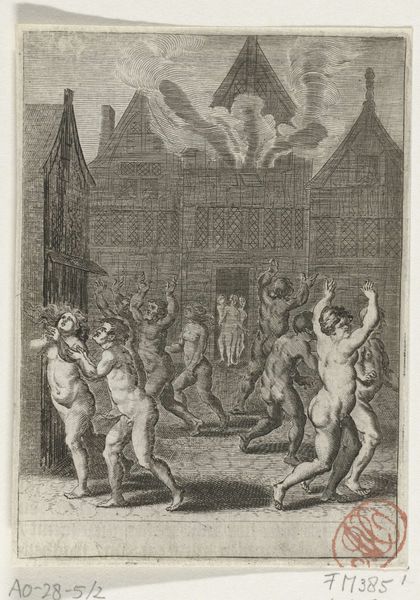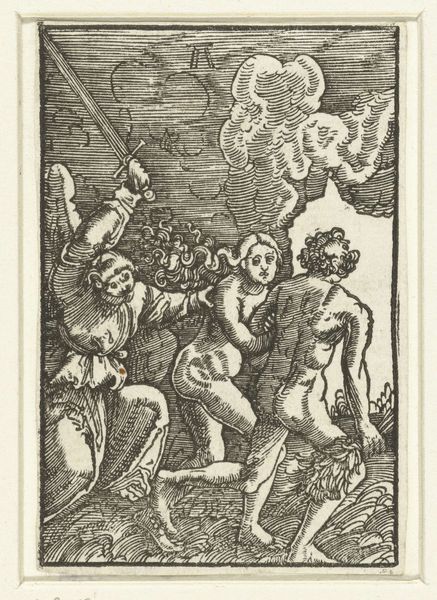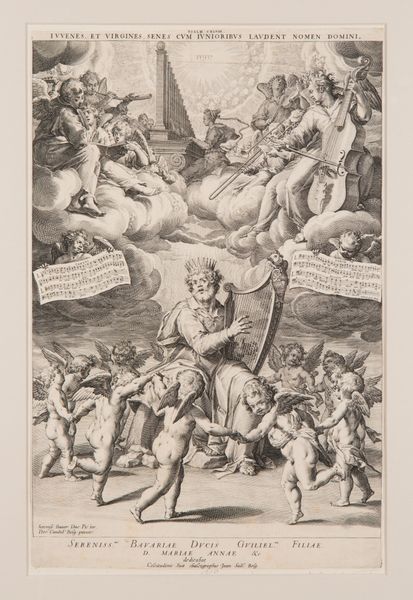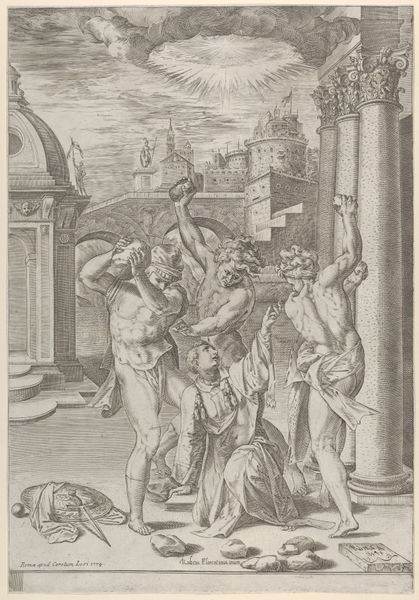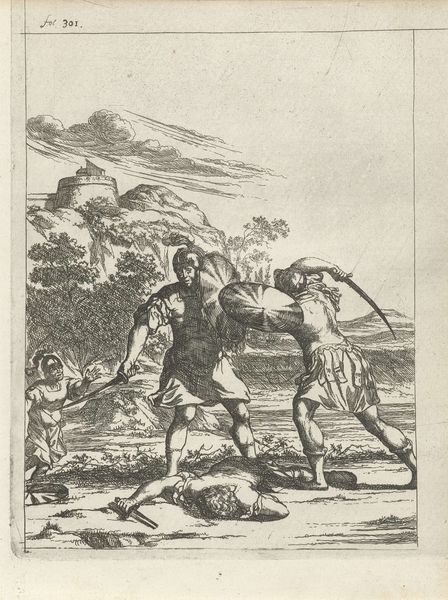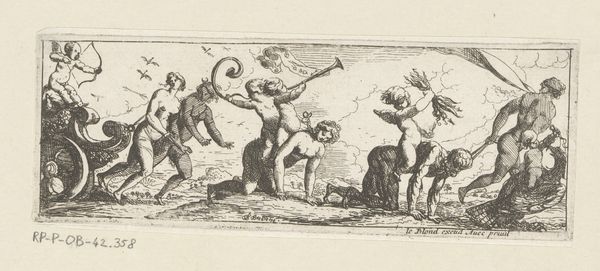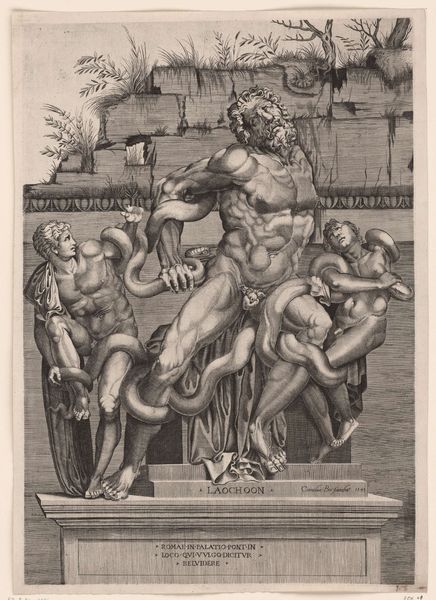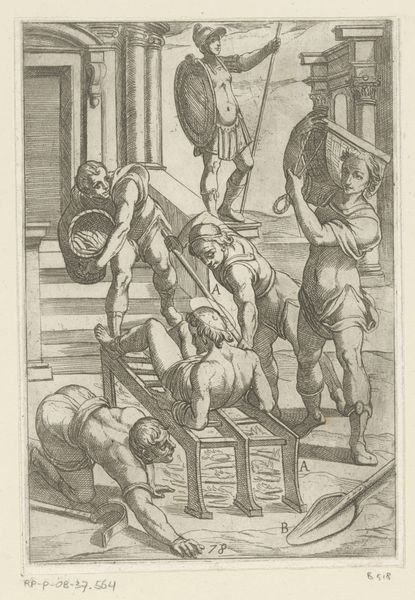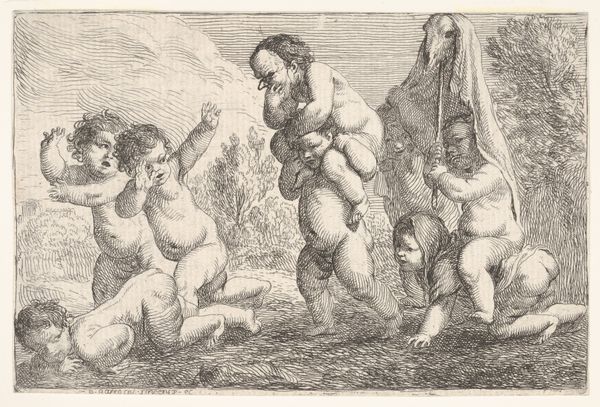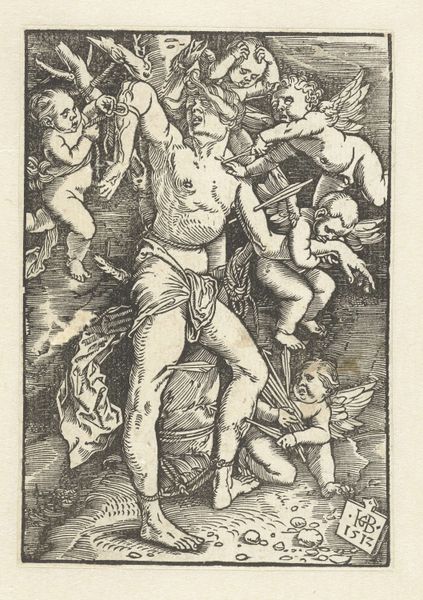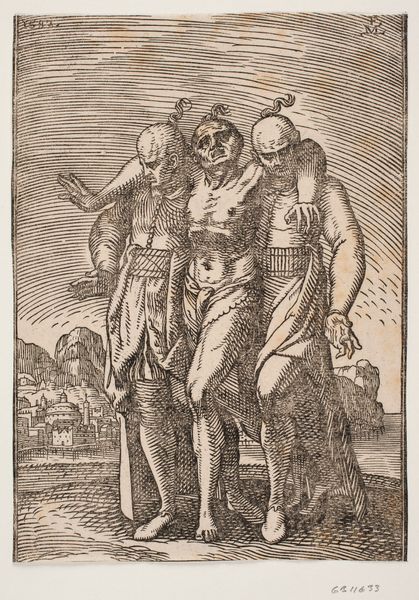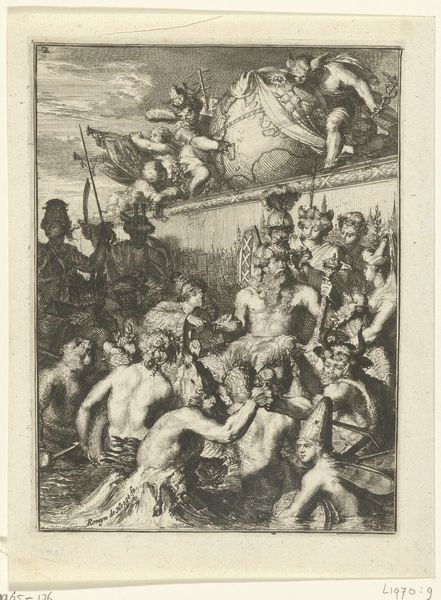
drawing, print, engraving
#
drawing
#
narrative-art
# print
#
figuration
#
history-painting
#
italian-renaissance
#
engraving
Dimensions: 5 3/16 x 3 9/16 in. (13.1 x 9.0 cm)
Copyright: Public Domain
Editor: Agostino Veneziano's "Tarpeia Crushed by the Sabines," created between 1514 and 1536, is a compelling engraving now housed in the Metropolitan Museum. The composition feels chaotic, almost violent. What strikes you most about the work? Curator: Formally, the engraving captivates through its manipulation of line and space. Notice how the density of the hatching varies, creating areas of light and shadow that model the figures and lend a sense of depth, despite the print’s two-dimensionality. How do these contrasts in tone affect the dynamism of the piece, in your opinion? Editor: It makes the figures feel more solid and adds drama, particularly highlighting Tarpeia as she’s being crushed. I also see an attempt at perspective with the wall, creating depth within a very shallow plane. Curator: Precisely. Furthermore, examine the poses of the figures. They exhibit a Mannerist influence, characterized by exaggerated musculature and theatrical gestures. This deliberate distortion of the human form heightens the emotional intensity of the scene. Does the artist's chosen medium impact how this intensity is perceived? Editor: Possibly. The sharp lines of the engraving seem to amplify the violence and brutality. It's not softened at all. I also notice the figure closest to us in the lower right, almost like he has some kind of monster feet or leg coverings. Curator: Indeed, consider how that figure functions structurally within the composition as a whole, guiding the eye up towards the central action. It certainly contributes to the overall unsettling aesthetic. Editor: I see that now, thanks! I originally thought it was a strange addition, but it balances everything in the foreground. It's been really useful thinking through this from a formalist perspective; it's all about structure, technique and looking closely.
Comments
No comments
Be the first to comment and join the conversation on the ultimate creative platform.
